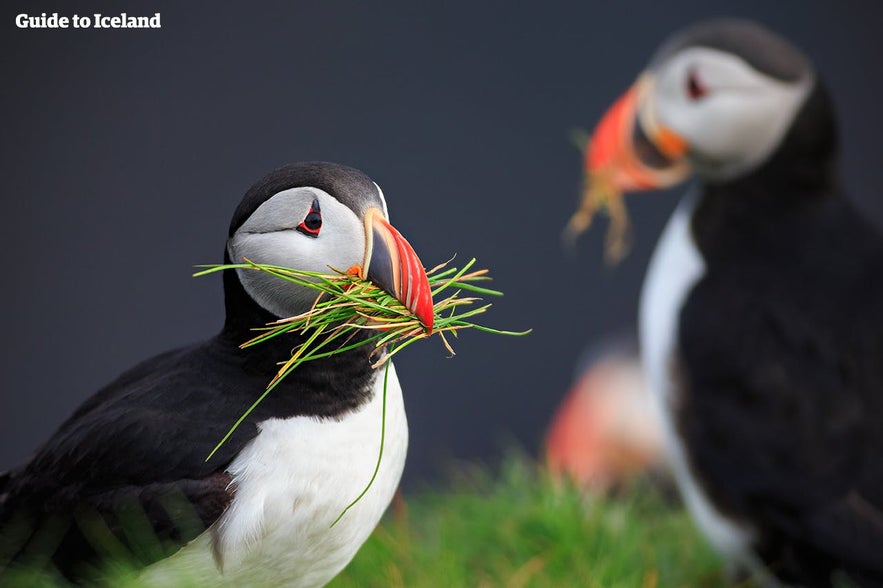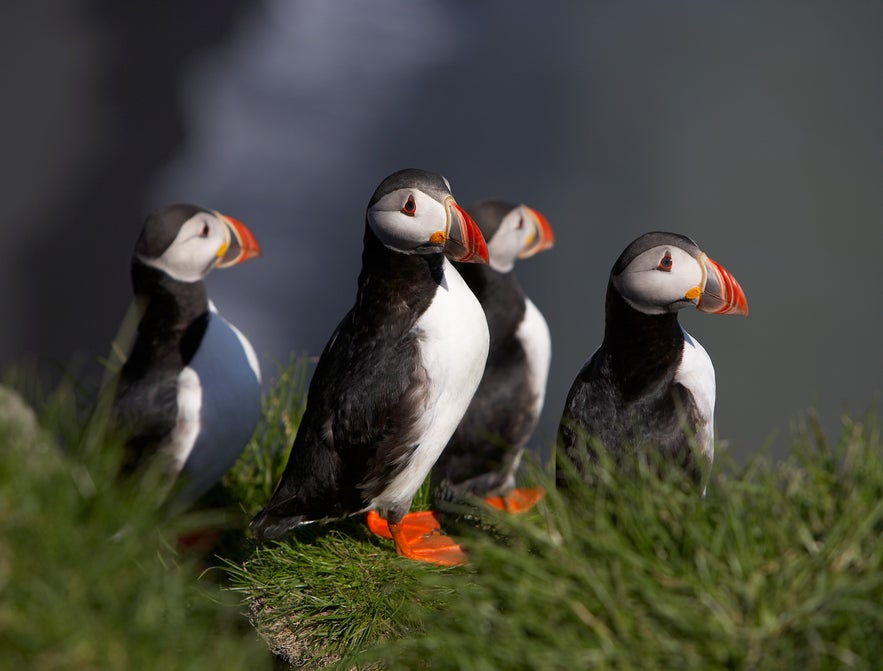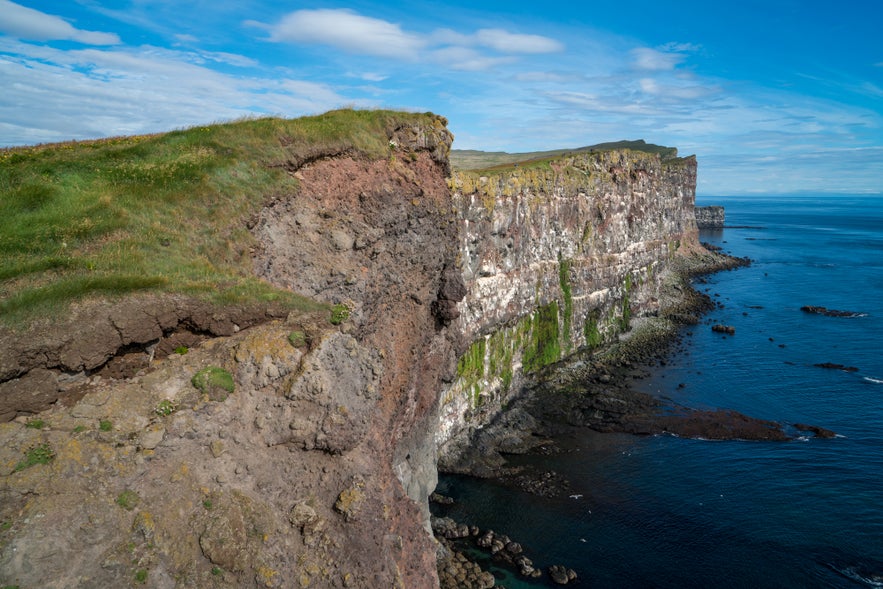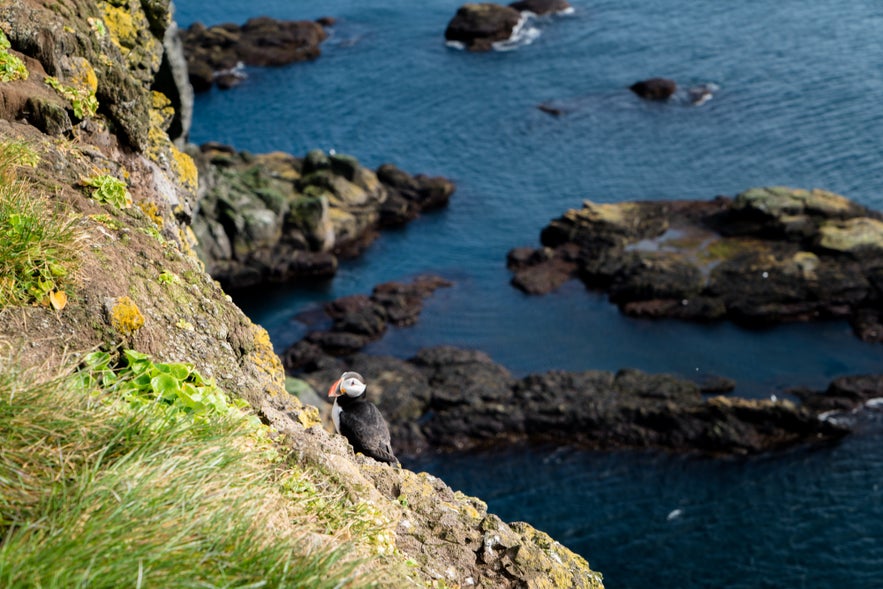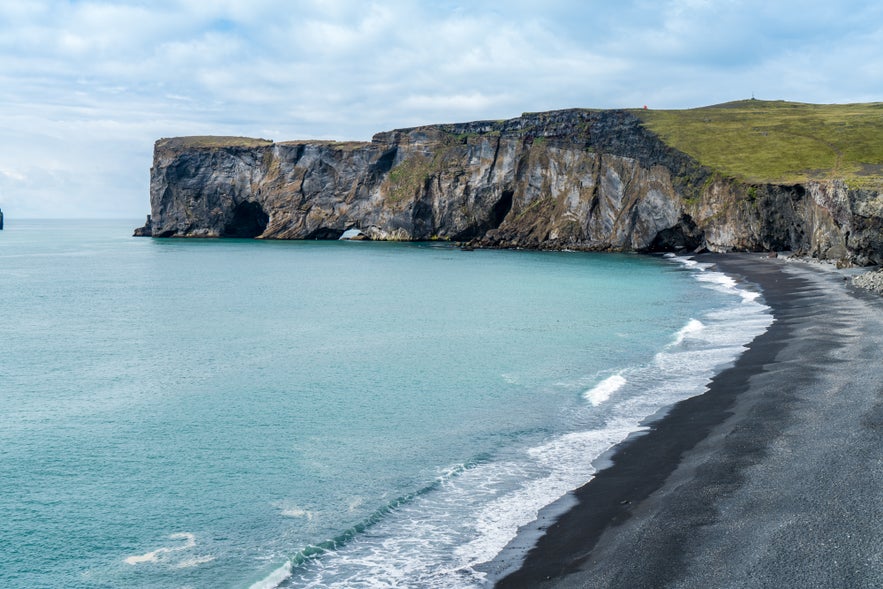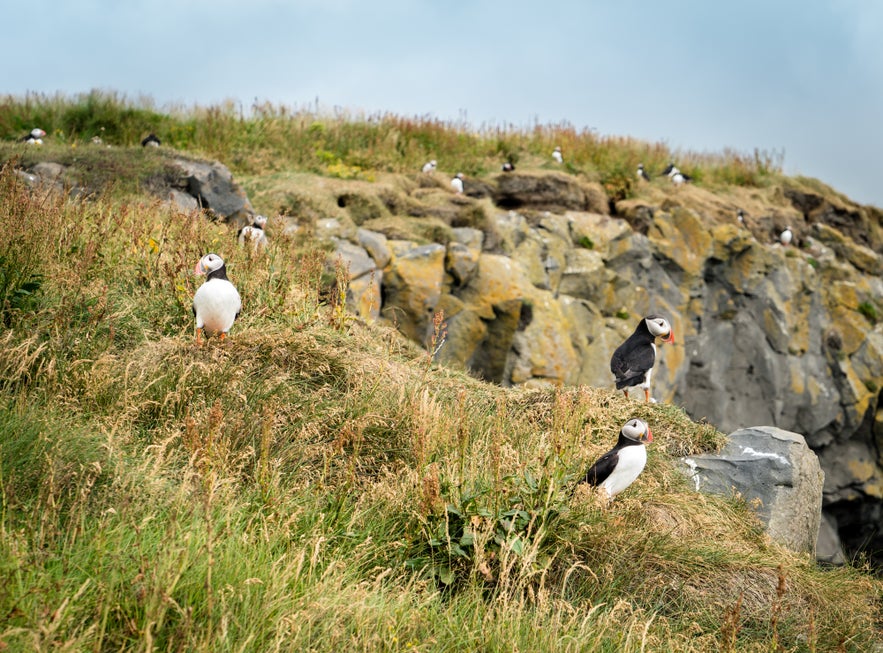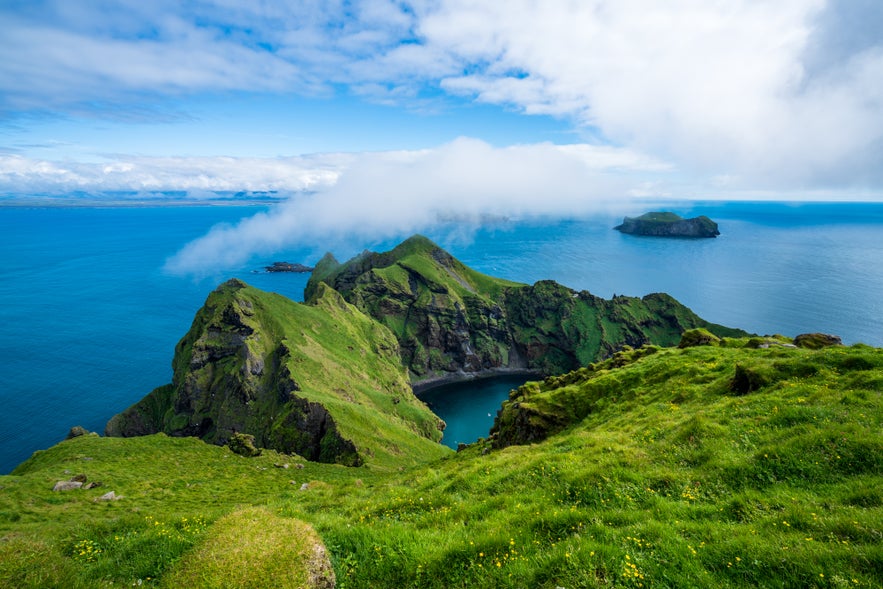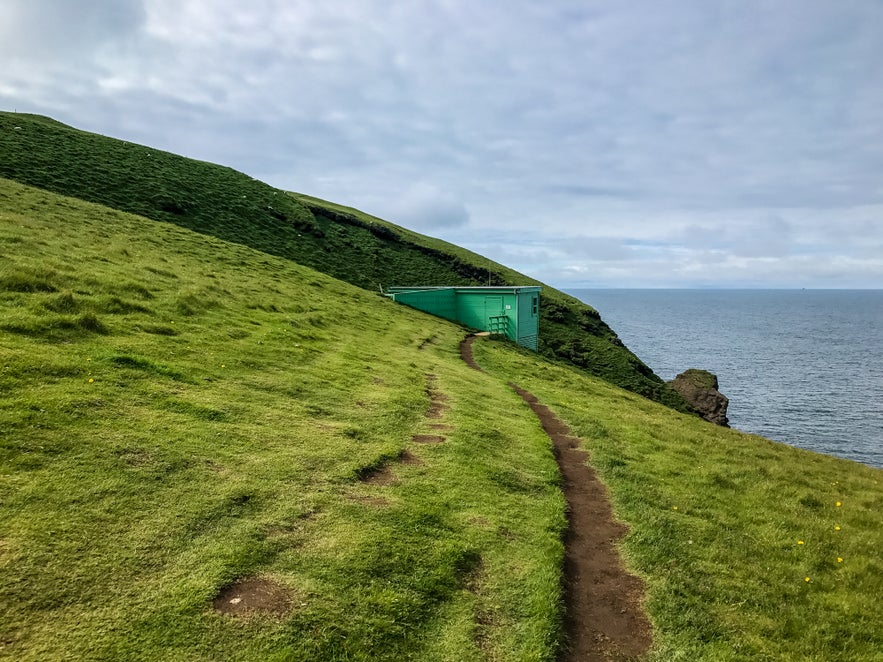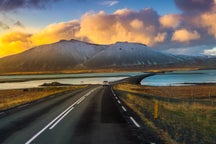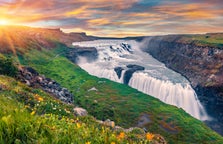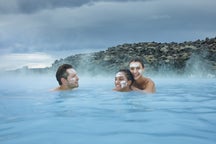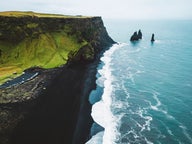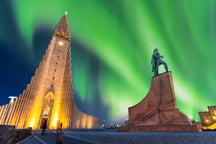You’ve probably seen countless pictures of these cute, little, orange-beaked birds often referred to as “the clown of the sea.” The Puffin, or more specifically the Atlantic Puffin, is one of the most iconic creatures in Iceland, and a trip to the country would not be complete without seeing one of them either nesting or flying around.
Iceland has the largest puffin population in the world, with over 60% of all Atlantic Puffins distributed all over the country. It is easy to travel the country, spot several colonies, and observe the birds in their natural habitat. While there are many places where you can see puffins, here are three of the best that will guarantee a good puffin experience if you visit Iceland during their breeding season – which goes from April until September.
- See Also: Birds in Iceland.
Látrabjarg
The Látrabjarg cliffs are some of the most impressive cliffs in all of Europe, not only for its huge 400-deep drop but also for its bird-watching quality during the summer. These cliffs, which are the western-most point in Iceland (and often considered the western-most point in Europe), are home to dozens of bird species that come to nest during the warm-ish summer months. The puffins, of course, are the star of the show and the reason many people come to these remote cliffs in the Westfjords.
Along Látrabjarg’s 14 kilometers of stunning cliffs, you’ll have several opportunities to get up-close with nesting puffins. You’ll see how exceptionally tame these penguin looking birds are considering the remote nature of the region. Have in mind that this is a natural environment, so keep a distance of at least a meter from the cliff. This is not only to be responsible not to disturb the puffin’s nest but also for your safety – as falling down this cliff wouldn’t be desirable, at all.
Still, one of the unique features of Látrabjarg is that you can photograph these birds from up close – literally from just a meter away in many cases – and see them fly by all over the cliff. At times, you may also see some individuals abseiling down the cliff, foraging for eggs and feathers as part of an old Icelandic tradition dating back centuries. This practice, of course, is now regulated to protect the birds.
Reaching Látrabjarg from Reykjavik takes over seven hours driving, so it is recommended staying in the Wesfjords overnight, at least, and visit other stunning sights like Dynjandi Falls and Rauðisandur, among others. If you're planning a road trip across Iceland, make sure not to miss the Westfjords, which is often skipped by tourists.
Dyrhólaey
While Látrabjarg deserves a top spot on your list of places to visit in Iceland, but should you not have time to visit the Westfjords, I recommend heading to Dyrhólaey Rock Arch along the south coast of Iceland – just three hours away from Reykjavík.
If you’re driving along Route 1 (the Ring Road), you’ll surely notice a striking natural landmark on your way towards Vík – a cliff with hexagonal basalt columns and a giant arch carved over millennia by fire and water. This dramatic landscape serves as a fascinating backdrop to one of the most accessible puffin colonies in the country.
You can reach the arch from the beach and from atop the cliff (passing by its Lighthouse). You can also go to the Kirkjufjara Beach near Dyrhólaey, where more puffins can be seen – and in many cases, even better than from the arch as many puffins nest on a more accessible terrain next to the visitor’s path.
Many puffins here are within an arm’s length. These little birds are so passive that you could take your time to admire their details, eyes, beak, and how they nest. Just don’t touch them, even if they are within reach.
One of the most interesting things about Dyrhólaey is in the puffin’s burrow structure. The puffin designs its burrow to accommodate its pufflings perfectly. At its back, they build a nest out of feathers and grass where they incubate the egg – all underground. There’s also a toilet area at the first bend in the burrow so the puffling can do their business without soiling their waterproof feathers. As they get older, they move the “toilet” closer to the entrance to accommodate their size.
In addition to puffins, there are other bird species on these cliffs, though fewer than at Látrabjarg. One thing to consider is that you’ll be sharing this spot with lots of other tourists given that the south is Iceland’s most popular region. Near Dyrhólaey you also have the famous black-sand beach of Reynisfjara, the Reynisdrangar sea stacks, the Mýrdalsjökull glacier, and the stunning waterfalls of Seljalandsfoss and Skógafoss.
- Find South Coast Tours here.
The Westman Islands
Last but not least, is probably the best place to see these cute puffins in action. The Westman Islands, or Vestmannaeyjar, are just a few miles off the south coast of Iceland – not too far from Dyrhólaey. With 1.1 million puffins, the Westman Islands have the largest Atlantic Puffin colony in the world. In addition to puffins, about thirty other bird species also nest in this tiny archipelago of 15 islands.
Of the 13 islands, only one has a human population, Heimaey. You can reach it by taking a ferry from Landeyjahöfn, or by flying from Reykjavik. There are also tours to Westman Islands, making it easier for tourists to reach these stunning islands.
The puffin population in the Westman Islands is so impressive that there is a tradition in the town where the children help pufflings who have wandered away from the cliffs, confused by the lights of the town, by giving them shelter for the night and releasing them the next morning, helping them make it back to the ocean.
Head to the Puffin Lookout on the southern tip of the island; there you’ll see hundreds of puffins flying, nesting, and just hanging around the cliffs in the area. At the lookout, there’s a small shack with some studies and extra information about the puffins in the area. The shack is also a great, covered lookout to watch and photograph without disturbing them.
In addition to puffins, these islands have a fascinating history of runaway slaves, pirate attacks, and even volcanic eruptions. It is worth spending a day there, or even staying overnight to enjoy this mostly overlook spot.
- See Also: Top 5 Islands in Iceland.

